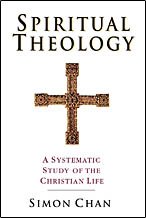Spiritual Formation?
 “Spiritual theology seeks to understand spiritual growth form beginning to end, making use of biblical and experiential data. Thus many ancient spiritual writers trace the development of the spiritual life as stages of growth. Perhaps the best known is the “three ways” of purgation, illumination and union, a scheme that crops up repeatedly in spiritual writings throughout history. Thomas has three classes of Christians: beginners, proficients and perfect. Bernard sees growth as four degrees of love and as twelve steps of humility. Teresa of Avila speaks of seven grades of prayer. In traditional Protestant theology, the Christian life is understood as progressing according to a certain “order of salvation” (ordo salutis): justification, sanctification and glorification.”
“Spiritual theology seeks to understand spiritual growth form beginning to end, making use of biblical and experiential data. Thus many ancient spiritual writers trace the development of the spiritual life as stages of growth. Perhaps the best known is the “three ways” of purgation, illumination and union, a scheme that crops up repeatedly in spiritual writings throughout history. Thomas has three classes of Christians: beginners, proficients and perfect. Bernard sees growth as four degrees of love and as twelve steps of humility. Teresa of Avila speaks of seven grades of prayer. In traditional Protestant theology, the Christian life is understood as progressing according to a certain “order of salvation” (ordo salutis): justification, sanctification and glorification.”Simon Chan- Spiritual Theology
I will be spending the next three days working a conference called the Spiritual Formation Forum in Long Beach. This conference features many of the biggest names when it comes to spiritual formation; Dallas Willard, Richard Foster, Larry Crabb and many others. At this Forum there are all kinds of workshops on meditations, Ignatius prayers, and all kinds of spiritual disciplines. I personally am not too sure about all of this. I have no doubt that these are great Christian people who desire to be closer to the Lord, but some of this stuff seems a bit misguided.
What are your thoughts on Spiritual Formation?
Doug



6 Comments:
"Meditations" I am not sure about. I do believe we are to meditate upon God and His Word, as we pray and study, but is that what they mean. What is Ignatius praying?
It's odd that you would bring this up. I am planning on posting on scriptural meditation later this week.
I am all for spiritual growth and formation. I am suspicious, however, of anyone who neatly condenses it to a formula or exercise that is extra-biblical. I would not summarily reject it, but I would certainly examine it very carefully before jumping in.
In some areas of this, New Age philosophy has been blended with true biblical disciplines.
I imagine that you already know a little of Willard and Foster. If not, then what I know of them is that they fall into the mystical Christianity category. Not coincidentally, it seems that many of the emergent type like their books and practices.
I just read a book called "Listening Prayer: Learning To Hear God's Voice And Keep A Prayer Journal". I would not recommend it as the "listening to God" is very subjective and grounded in mystical experiences. I'm not sure if Willard takes a similar approach, but if he does, then I'd be wary.
You can check out a review of one of his books at 9marks.org
Thanks guys,
I was trying to get a feel for where everyone was. Good point Joshua on the connection with the evergent church.
James Arcadi,
Thanks for stopping by. This would happen to be the same James Arcadi that was in the Greek class at Trinity with me, and is now attending GC?
Doug
Hey James,
It's great to hear from you. I hope things are going well. Tell Alli I said hi,
Doug
Post a Comment
<< Home